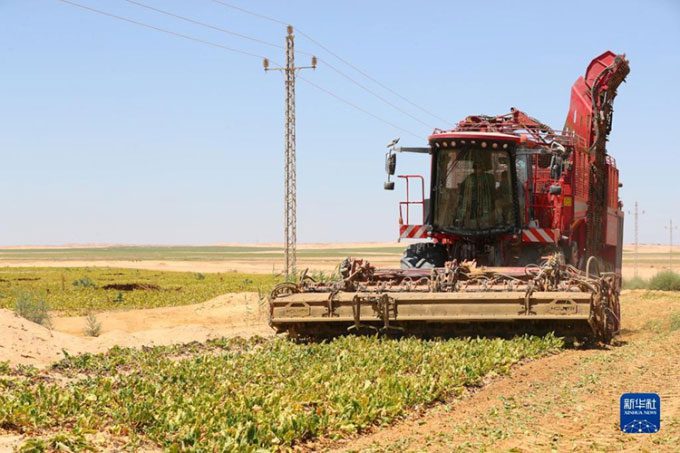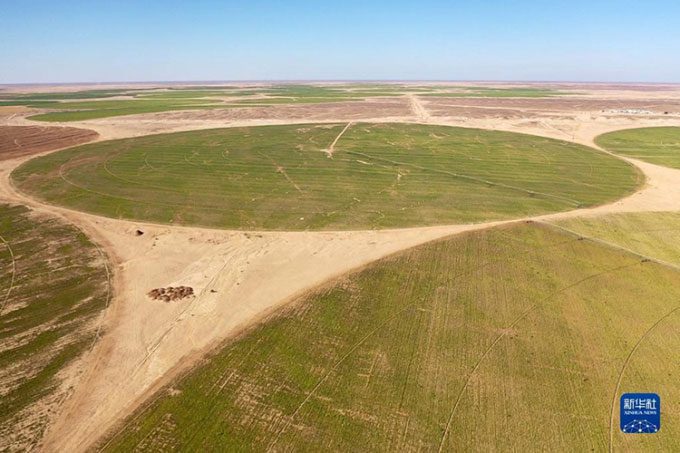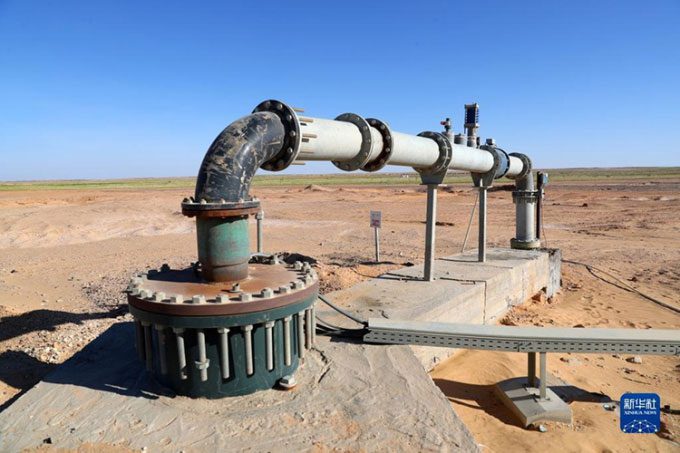Egypt can cultivate tens of thousands of hectares of sugar beets on the arid desert land in the southern part of the country, thanks to groundwater exploration technology.

Sugar beet harvester in the Egyptian desert on July 11. (Photo: Xinhua)
The sugar beet harvesting machines work on a vast field in western Minya province and then transport the beets to a processing plant located 40 km away. This is part of the Canal Sugar project, a $1 billion initiative between Egypt and the UAE, aimed at transforming 50,000 hectares of desert into agricultural land. Finding sufficient irrigation water is crucial for achieving this goal.
“We came to the middle of the desert, and with the help of the Zhongman Petroleum and Natural Gas Group from China (ZPEC), we began drilling exploratory wells and subsequently developed an irrigation network,” project leader Aaron Baldwin told Xinhua. “About 300 to 350 wells will be needed when the project is completed.”
With over 150 wells already drilled, the expansive sugar beet fields are gradually greening the desert, forming a massive farm to supply raw materials for the sugar beet processing plant.

Sugar beet fields in the desert of western Minya province, Egypt. (Photo: Xinhua)
“We are currently quite satisfied with the sugar yield from the sugar beet fields. This is the second production year, and the yield has increased by about 50% compared to last year, so we feel we have a very good model,” Baldwin added.
Zhou Guiqiang, equipment manufacturer from ZPEC’s branch in Egypt, mentioned that they faced many challenges related to the geological conditions of the area when starting the project, but through continuous research and exploration, everything has become smoother.

An operational water well on the sugar beet field. (Photo: Xinhua)
“Initially, drilling a well took about a month, while now it can be completed in 14 days. We have now drilled over 150 high-quality exploratory wells, more than 50 of which are operational,” Guiqiang stated.
Baldwin hopes the farm will produce about 2 million tons of sugar beets annually within the next three years. Once fully operational, the plant is expected to produce 900,000 tons of white sugar each year. This will be a significant boost for Egypt’s sugar production, which currently stands at approximately 2.8 million tons per year.




















































